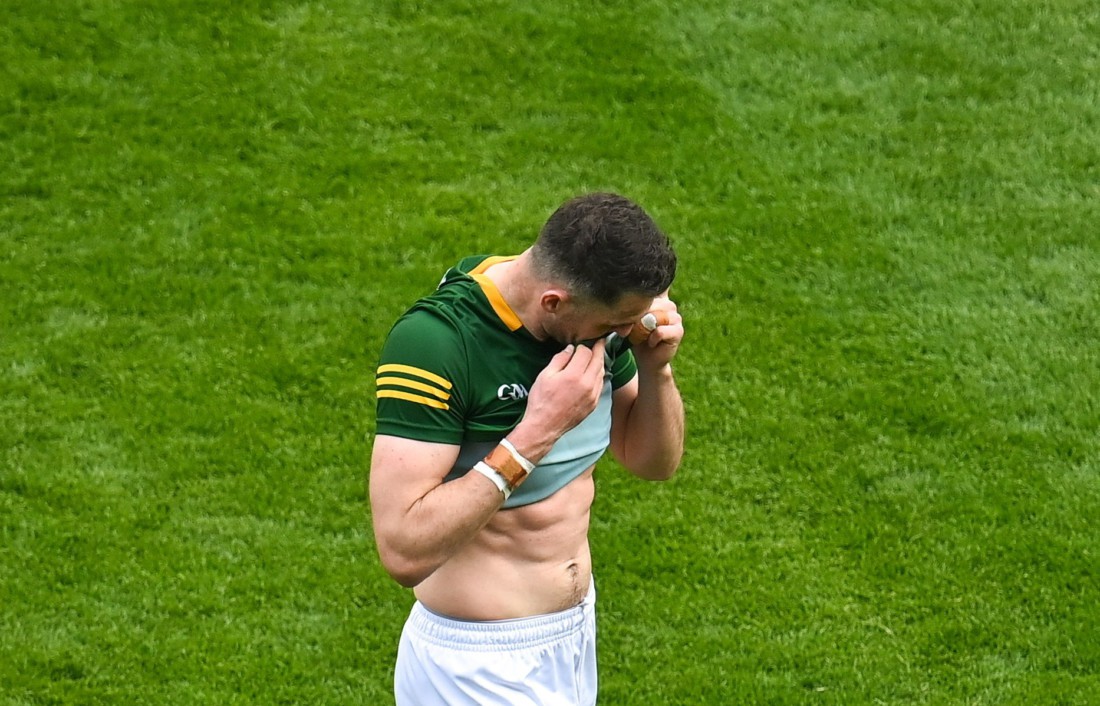WE’RE all familiar with the scenario of the mismatched games. A team beaten out the gate before half-time. It’s torture for all involved, and unless they’re managed correctly, can leave a psychological mark for the worse, on both sides. You run the risk of players quitting, demotivated, on both sides. Why? Because those of us who play team sports crave a bit of competition, a battle amongst friends. Without contest, without hope of winning or being challenged it stops being fun.
Grading within the GAA sports has helped alleviate a lot of these washouts, but they’re still quite prevalent in underage grades (and, many would argue, the senior provincial football championships but we won’t say too much about that in Ulster). Sometimes a scalding beating is just inevitable. It’s known from throw -in that the underdog has little chance of beating a Goliath. The outcomes are usually followed by discussions about the value of X competition, without much thought given to the potential impact these results may have on players and teams.
In very simple terms, sport is an excellent way to teach young people about the challenges and adversities of life. In a washout, the winners should be challenged by the ethics and sportsmanship of a game. However, how often have you watched substitutes on a winning team left standing shivering on the sideline, while a coach persists in pulverising the opposition’s u-10 side, in a really weird ego-fest or even stranger, due to a grudge he’s held against a club from the time he played u-10 football.
By acknowledging that running up a massive score isn’t going to help anyone, not even your own team long-term (it makes them demotivated and lazy), you’re finding a chance to challenge your own players. This helps them grow a mental maturity that will stand to them as they get older, and gives a confidence to adult players that they can play well, even when fulfilling different challenges. Confidence isn’t easily bought. Many coaches and managers try to buy it by bringing in very expensive guest stars for an evening, whereas spending a bit of time in advance on strategies to build confidence is priceless.
If you’re on the winning side, some simple changes could be forcing players to kick using their weak leg, banning hand passing, or changing positions, while also ensuring everyone togged gets to play. This builds the basic skills of the game, rewards continued effort over the end result, grows confidence by doing rather than just looking or going through the motions, while also teaching the skill of respect for opponents and being a good winner. It’s a win on the double.
It’s a bit harder for the losing side. Nobody wants to feel like a Division Four team after being clattered by Dublin. Yes the great shock might happen, but it probably won’t. And if it does, it’s probably because the Goliath has slipped and not because David has knocked him. How do you psychologically prepare for that? Coaches should instruct their team to focus on achievable wins during the game, and not just the outcome.
Find ways to measure things like self-improvement, teamwork and if they’re children, fun. Run a team with an attitude that success is due to commitment and fun. Not just results. Emphasise that results come from being committed, and not the other way around. Play the subs. Imagine how you’d feel if you were being well-beaten and the manager couldn’t even be bothered to give you a go. Why would you be bothered in showing up to training the following week? You’d be amazed at how many minnows find ways to turn the tide when management and players eventually come around to that way of thinking. That fosters an environment for the ‘Surprise Result.’
The teams that keep this attitude are the ones who sometimes pull off the shock. That’s the power of the mind. After the loss, don’t get angry with players or blame them. They feel bad enough and don’t need to told how grim the display was. Instead, regroup at a later stage and discuss ways improvements can be made. Make sure they know as well that it does matter, and find something for everyone to be proud of. Make sure they leave knowing something new about their game or themselves that they didn’t have in their arsenal before the referee threw the ball in.
We get very wrapped up in results in this business. And it’s no surprise why. As it’s a results-based gig. Even if you’re ‘only’ coaching the u-10s. We just need to remember what results actually matter. Keeping players playing, and cumulative progression and challenges to keep them coming back for more.
Receive quality journalism wherever you are, on any device. Keep up to date from the comfort of your own home with a digital subscription.
Any time | Any place | Anywhere












